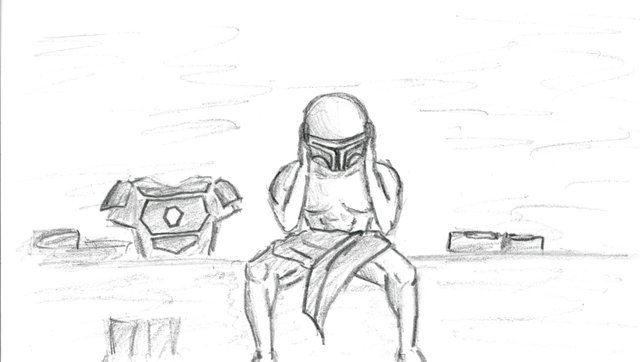Recovering like a Spartan – Concussion Relief Anecdote

The Spartans
The Spartans, like The Mandalorians, were dedicated to their “warrior ways.” Even in their leisure time, they often focused on activities that related to improving their physical strength and fighting skills. In other words, being a Spartan wasn’t only a profession; it was a way of life.
Warriors may not have recovered from their injuries as much as they would have liked. But if we prioritize, practice, and professionalize recovery with the same passion, then we can see proper results.
The Story
While taking a leisurely stroll through the mountains, I took a landing that was harder than expected.
As a result, I suffered a mild traumatic brain injury (mTBI). I didn’t know you could get a concussion from sticking a landing. Perhaps I was a little overconfident and relaxed, or maybe my depth perception was a bit off. The devious drop resulted in a painful ego to say the least. I was shaken, literally, but I appropriately shook it off. The symptoms didn’t even show up until a day later.
The Symptoms
- Headache
- Neck stiffness
- “Tingling” in the brain
- Light/Sound sensitivity
- General fatigue and feeling “bad”
I didn’t have any memory loss (...or did I?) or blurry vision. In some ways, I seemed to be even more focused than usual. I didn’t want to believe that it was a TBI, but I started treating it as if it were just to be safe. By the third day, it was evident that I needed to take it seriously.
The Steps
I found these things to be helpful, if not prescribed.
- Go into Ketosis
- Avoid strenuous activity
- Avoid reading and screen time. Use Dark Mode, and [Blue Blockers] when screens are unavoidable.
- Avoid reading
- Avoid loud sounds and bright or junk lighting
- Spend time in nature
- Infrared Sauna
- Chiropractic (soft neck manipulation) seemed to help tremendously
- Float Tank – sensory deprivation
Recovery is a lifestyle. Although you might not be able to take full days off for long, it’s important to keep up with the steps and make the changes throughout the day.
The Supplements
I searched for anything that I could find for protecting the brain or improving cognitive performance. The use of some of these supplements don’t have conclusive studies, but as long as they don’t have harmful side-effects they should be good to go.
- DHA and EPA (i.e. Fish Oil and Krill oil)
- Nicotine (not smoking) - Nicotine should not be used if you have a tumor, or if the brain hasn’t fully developed yet (i.e. < age ~25).
- Lion’s Mane
- NAD(+) (Pau d’arco inner bark tea)
- Creatine Monohydrate
- Frankincense Oil
- Hydrogen-enriched water (lower inflammation)
While the “shotgun” approach to supplementing is bad science, sometimes you only get one shot and time is not on your side. When things are better you can test for individual efficacy.
The Success
I seem to have recovered mostly without too many negative results. As a bonus, I discovered that many of the above techniques are also useful in treating and preventing general cognitive decline, or some aspects of dementia.
I also have concluded that if there are things we should or should not be doing to help our brains, then it would probably be beneficial to take those things to heart even before we have suffered injury. For example, limiting screen time and taking frequent breaks.
We were designed to work from a state of rest. Most of us have this backwards. First enter into rest as you were created, and then you can work to become what you were meant to be.
Congratulations @coruscanta! You have completed the following achievement on the Steem blockchain and have been rewarded with new badge(s) :
Click here to view your Board of Honor
If you no longer want to receive notifications, reply to this comment with the word
STOPDo not miss the last post from @steemitboard: